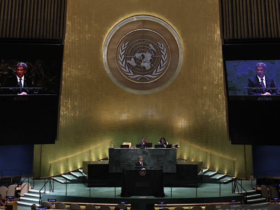KUALA LUMPUR, Sept 28 — Economists believe that Budget 2026 would not introduce any major changes in the taxation system — especially individual and corporate taxes — to preserve consumer and investor confidence as the United States tariffs kick in.
Instead, the government might consider the expansion of the capital gain tax (CGT) scope on capital gains from the disposal of shares listed on Bursa Malaysia, said MBSB Investment Bank Bhd (MBSB) Research director and head, Imran Yassin Yusof.
“Currently, CGT covers the gains from the disposal of unlisted shares and the disposal of foreign capital assets.
“But we believe that this may need further impact study and has a low probability to be tabled in Budget 2026,” he told Bernama in a recent email interview.
Other possible new taxes to be introduced include inheritance tax, sin tax, or health tax, such as a tobacco tax, he added.
Similarly, Doris Liew, an economist specialising in Southeast Asian development, says she expects the budget to enhance dividend and CGT enforcement.
“With limited fiscal space for new taxes in 2026, the budget is likely to rely on incremental compliance improvements, such as widening the tax net via e-invoicing and tax identification number (TIN) registration and digitalisation of tax administration.
“It is also likely to expand non-tax revenue such as levies, fees and asset monetisation,” she said.
While the carbon tax is a recurring proposal under the Budget 2025, Liew opined that the implementation might face two hurdles, namely competitiveness and readiness, as an early carbon levy could divert foreign direct investment (FDI) to export-oriented Vietnam and Indonesia.
“In terms of readiness, Malaysia’s regulatory and monitoring frameworks remain immature,” she said, adding that if the carbon tax is introduced, it would likely start as a pilot for listed companies instead of a blanket fiscal instrument.
On individual tax, Imran said MBSB Research does not foresee any rate revisions, including for the top 20 per cent income earners (T20), as no additional fiscal stimulus is deemed necessary following Bank Negara Malaysia’s (BNM) pre-emptive policy easing in July 2025 and amid sustained domestic economic growth.
BNM cut the Overnight Policy Rate by 25 basis points to 2.75 per cent on July 9, 2025 — the first cut since 2020, in response to uncertainties surrounding tariff developments and geopolitical tensions.
“In other words, we do not expect any major changes to the taxation system as higher taxes could result in slower spending next year,” he said.
Liew opined that corporate tax would almost certainly remain unchanged, as Malaysia seeks to preserve investor confidence following the tariff shocks, reflected in August’s trade slowdown.
August 2025’s trade eased 1.9 per cent year-on-year (y-o-y) to RM247.07 billion, with exports growth slowing to 1.9 per cent from 6.8 per cent in July 2025 and imports contracting 5.9 per cent from a marginal y-o-y growth of 0.6 per cent in July this year.
Overall, Liew described the government as ‘walking a tightrope between fiscal consolidation and growth support’.
“On one hand, higher revenue is needed to close deficits and fund social spending, on the other, tariff-related export weakness, elevated food and energy costs and looming global supply chain uncertainty through 2027 argue against new burdens on firms or households,” she said.
Meanwhile, Imran believes that while broadening the tax base through new taxes is a positive step for government revenue, it is equally critical to enhance tax compliance and curb evasion, as well as to communicate financial reports and government spending effectively.
At the same time, both economists do not anticipate further expansion of the sales and service tax (SST) coverage.
Prime Minister Datuk Seri Anwar Ibrahim, who is also the Finance Minister, is scheduled to table the Budget 2026 in Parliament on Oct 10.


-加码-scaled.jpg)

-加码-scaled.jpg)

















Leave a Reply